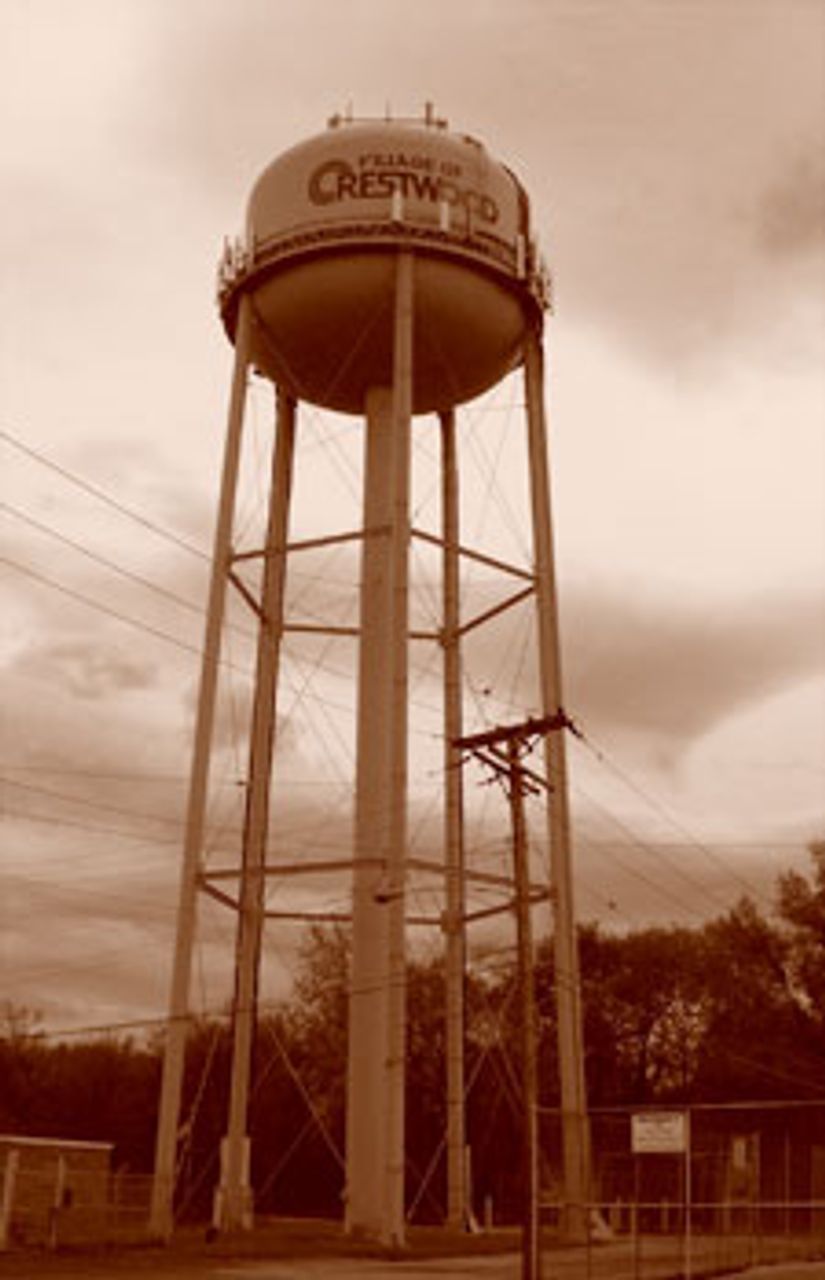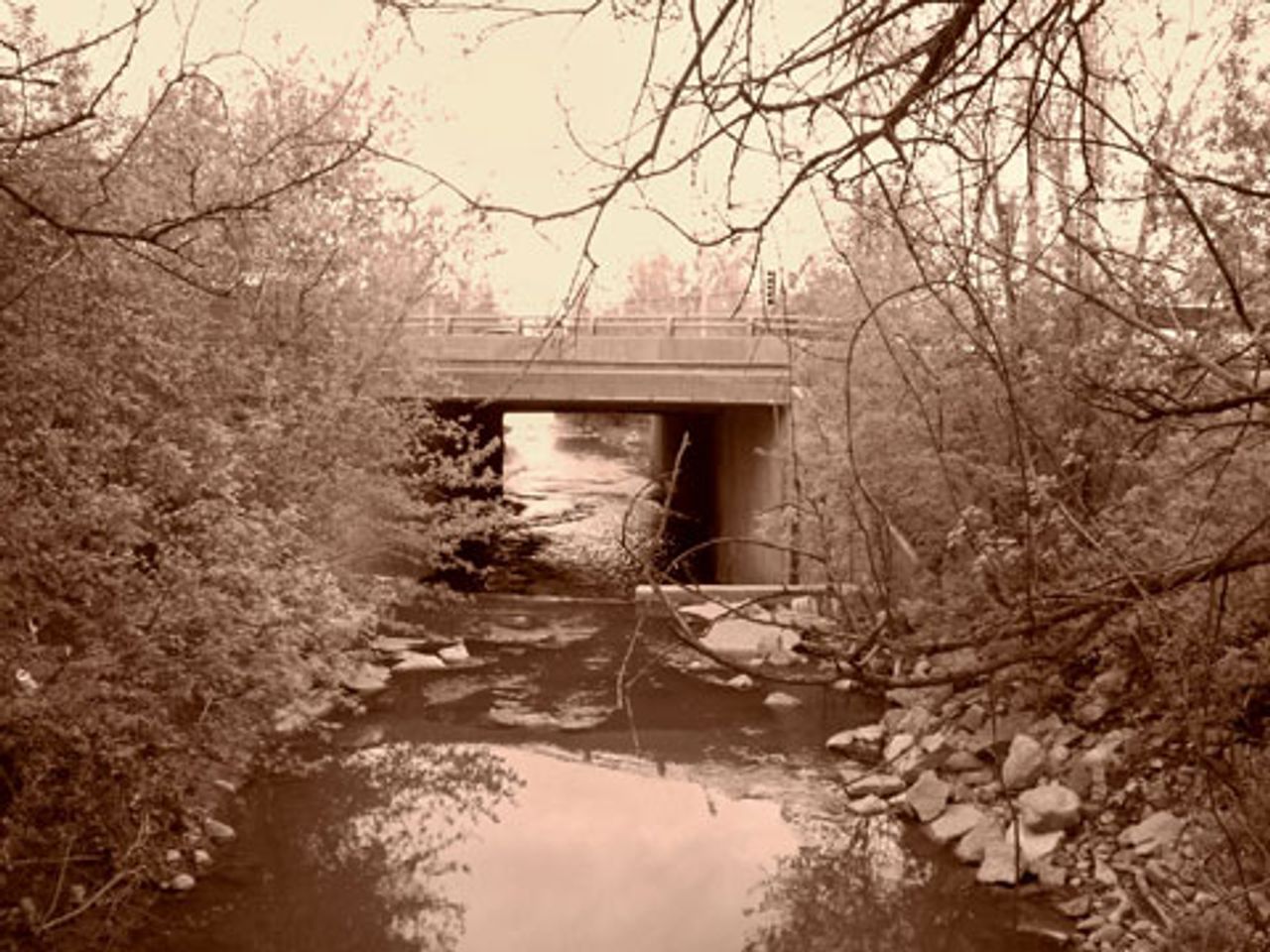 Water Tower; bottom left is the building
Water Tower; bottom left is the buildinghousing the contaminated well
Last month, investigators from the US Environmental Protection Agency (EPA) raided the Village Hall of Crestwood, a working-class suburb just south of Chicago, as well as the Public Works Department and the Police Department, in search of evidence to support allegations of environmental crimes. The warrant served by US Attorney Patrick Fitzgerald’s office was in response to a Chicago Tribune investigative report concerning the safety of Crestwood’s drinking water.
The Chicago Tribune reported that for over two decades, the village knowingly supplied its 11,000 residents with contaminated tap water. Records obtained by the Tribune show that in 1986 Illinois EPA officials shared test results of the well with the village that showed dangerous chemicals from a dry cleaning business less than 300 feet away had seeped into the ground water and contaminated the village’s well water.
At that time village officials assured state regulators that they would begin purchasing all tap water from Lake Michigan, using the contaminated well only in an emergency. However, records show that the contaminated well water was routinely pumped to Crestwood’s residents—providing up to 20 percent of all tap water for some months—for over 20 years.
Then village trustee, now Mayor Robert Stranczek, admitted to the Chicago Tribune of knowing of the well’s use at least since 1997. Furthermore, village officials were on hand for a contractor’s testing of the well in 1998 that showed the water to be contaminated. The final capping of the well occurred in December 2007, only after a mandatory statewide testing of municipal wells by the Illinois EPA again concluded that the water was contaminated.
 The creek flowing into the nearby Cal-Sag Channel
The creek flowing into the nearby Cal-Sag ChannelAlthough both village officials and Illinois EPA regulators were cognizant that the residents had been drinking the untreated water for two decades, neither came forward to inform the public despite a 2005 right-to-know law requiring the EPA or the Illinois Department of Health to notify citizens who may be exposed to soil or groundwater pollution.
Crestwood’s annual reports required by the Safe Drinking Water Act assured residents they were drinking treated lake water, even though well use was documented by city officials in a hand-written ledger.
The EPA has reported that a village official confirmed that the use of the contaminated well water was motivated by financial considerations. Indeed, Crestwood cynically boasted of having the cheapest water rates in Cook County.
The contaminants found in the Crestwood well are some of the most toxic, and are linked to cancer and liver damage among other ailments. The toxic dry-cleaning chemical perchloroethylene (PCE) breaks down into dichloroethylene and vinyl chloride once in the ground. The EPA says there is no safe level of exposure to vinyl chloride, yet the October 2007 test showed levels of 5.41 parts per billion (more than twice the legal limit).
The Crestwood scandal results from decades of budget cuts to federal regulatory agencies and their subordination to the very industrial interests they are designed to monitor, along with local and state governments’ drive to “balance budgets” and attract private investment at the expense of social need.
It comes on the heels of a string of higher-profile failures of government regulation. In February, the Food and Drug Administration appeared helpless in the face of a nationwide salmonella outbreak linked to contaminated peanuts. The outbreak would have been prevented or contained by routine inspections and testing.
Mere weeks afterwards, the largest beef recall in US history was issued following the release of an undercover video by the Humane Society showing sick cows being brought to slaughter. Despite a USDA hold on the beef of Westland Meat Company on January 30, it was not until February 19—nearly three weeks later—that the company voluntarily recalled the product.
